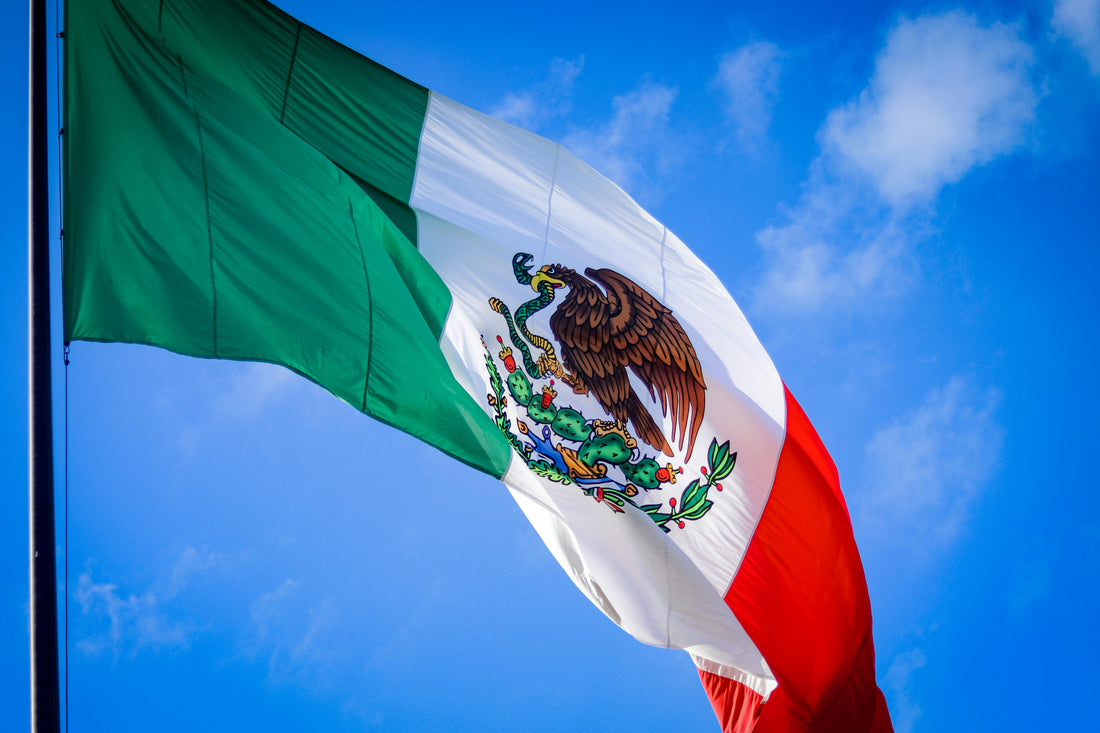
20 Everyday Spanish Words Unique to Mexico
Share
Spanish is a vibrant, evolving language spoken by millions of people around the world, and just like English varies between the U.S., the U.K., and Australia, Spanish has its own rich regional flavors. One of the most distinctive and colorful varieties is Mexican Spanish, known for its unique expressions, local slang, and idioms that reflect the culture, humor, and rhythm of everyday life in Mexico.
If you’re planning a trip to Mexico, watching Mexican movies or TV shows, or just want to sound more authentic when speaking Spanish, learning these regional expressions is key. Understanding Mexican slang not only boosts your fluency but also gives you a deeper insight into the way Mexicans think and express themselves.
If you're serious about sounding natural and confident, 20 Mexican Marvels is a must-have. This book dives deep into the heart of Mexican vocabulary and reveals the culture behind the words.
Below are 20 must-know words that are unique to Mexican Spanish, along with detailed explanations and examples.

1. ¡Órale!
This incredibly versatile word can be confusing at first because it takes on several meanings depending on tone and situation. It can express surprise ("Wow!"), encouragement ("Come on!"), agreement ("Okay!"), or urgency ("Let’s go!").
Example: ¡Órale, ya vamos tarde! (Come on, we’re already late!)
Etymology: Possibly derived from the verb orar (to pray), but evolved in street use to convey action or emotion.
2. Chido
Used to describe something cool, awesome, or impressive, chido is a staple of Mexican youth slang. It’s positive, upbeat, and a great way to sound like a native.
Example: Esa película está bien chida. (That movie is really cool.)
Synonyms: padre, chévere (used in other Latin American countries).
3. Güey
Pronounced “wey,” this word is extremely common in informal Mexican Spanish. It’s often used to refer to a friend or peer, similar to “dude” or “bro.”
Example: ¿Qué haces, güey? (What are you doing, dude?)
Note: While widely used, it can be offensive if said with the wrong tone or to the wrong person.

4. Neta
Neta means “truth” or “seriously,” and it’s often used to express disbelief, agreement, or to ask if someone is being honest.
Example: ¿Neta que ganó? (Seriously, he won?)
Etymology: From the Latin netus (clean, pure), referring to pure truth.
5. No manches
Literally “don’t stain,” but figuratively it means “No way!” or “You’re kidding!” It expresses surprise or disbelief in a playful or shocked way.
Example: ¡No manches! ¡Eso está increíble! (No way! That’s incredible!)
Variation: No mames is a ruder version, often avoided in polite conversation.
6. Chamba
A casual word for “job” or “work.” It’s not formal, but you’ll hear it all the time in daily life.
Example: Tengo mucha chamba hoy. (I have a lot of work today.)
Origin: Thought to come from the English word “chamber” (referring to workplaces in old buildings).
7. Padre
Literally “father,” but in Mexican slang, padre also means “cool” or “awesome.”
Example: ¡Qué padre tu coche! (Your car is so cool!)
Similar to: chido, but used across generations.
8. Lana
Money makes the world go ‘round, and in Mexico, people talk about lana when they mean cash. This slang word is equivalent to “bucks” in English.
Example: No tengo lana para el cine. (I don’t have money for the movies.)
Cultural tip: You might also hear varo as another slang word for money

9. Cuate
A friendly word for “buddy” or “mate.” Also used to refer to twins in Mexico.
Example: Él es mi cuate de la universidad. (He’s my college buddy.)
Origin: Possibly from the Nahuatl word coatl meaning twin or companion.
10. Chavo/a
These are informal words for “guy” and “girl,” typically referring to young people.
Example: Ese chavo me cae bien. (I like that guy.)
Used instead of: niño/a or joven in everyday speech.
11. Antro
In Mexico, antro refers to a nightclub or dance bar, completely opposite to its negative meaning in other Spanish-speaking countries.
Example: Vamos al antro esta noche. (Let’s go to the club tonight.)
Context: Popular among the younger crowd for nightlife.
12. Ahorita
One of the most confusing Mexican words for Spanish learners. It literally means “right now,” but could mean “soon,” “in a while,” or “maybe never,” depending on the speaker.
Example: Ahorita voy. (I’m going… eventually.)
Cultural insight: It’s more about intention than precision in time.
13. Híjole
An exclamation expressing surprise, worry, or frustration.
Example: ¡Híjole! Se me olvidaron las llaves. (Oh no! I forgot the keys.)
Comparable to: “Oh man!” or “Jeez!” in English.
14. Chilango
Refers to someone from Mexico City. Depending on the region and tone, it can be neutral, affectionate, or pejorative.
Example: Mi primo es chilango. (My cousin is from Mexico City.)
15. Bronca
Used to describe problems, conflicts, or trouble.
Example: No hay bronca, todo está bien. (No worries, everything’s fine.)
Literal meaning: Can also mean a quarrel or fight.
Discover More Mexican Spanish with "20 Mexican Marvels"
If you want to explore more Mexican Spanish words while learning about the country’s culture, 20 Mexican Marvels is the perfect book for you! With engaging dialogues and cultural insights, you’ll master regional vocabulary in no time.
16. Fresa
Literally “strawberry,” but used to label someone who is snobby, preppy, or overly posh.
Example: Ella es muy fresa, siempre compra ropa de marca. (She’s so preppy, always wearing brand-name clothes.)
Cultural context: Often associated with upper-class behaviors.
17. Codo
Means “elbow,” but in Mexican slang, it describes someone who is cheap or stingy.
Example: Mi tío es bien codo, nunca quiere pagar. (My uncle is so stingy, he never wants to pay.)
Similar to: “Tightwad” or “cheapskate.”
18. Merequetengue
A colorful, whimsical word used to describe a noisy mess, ruckus, or chaotic situation.
Example: Se armó el merequetengue en la fiesta. (There was a big ruckus at the party.)
Vibe: Often used playfully or humorously.
19. Chancla
The humble flip-flop, but in Mexican culture, chancla is also a symbol of discipline — many children grew up fearing their mom’s flying chancla!
Example: ¡Saca la chancla! (Get the flip-flop!)
Iconic: A cultural reference in memes and comedy.

20. ¿Mande?
Used instead of ¿Qué? when you didn’t hear something, mande is considered more polite and respectful.
Example: —¿Puedes repetir? —¿Mande? (—Can you repeat? —Pardon?)
Common in: Everyday interactions, especially in customer service or with elders.
Why Learning Regional Spanish Matters
Learning regional Spanish, especially Mexican expressions, is more than just acquiring vocabulary. It’s about immersing yourself in the way people think, laugh, complain, flirt, and express love or frustration. These words reflect local values, humor, and history — and they make your Spanish feel real and alive.
By mastering these everyday Mexican terms, you'll sound more natural, avoid misunderstandings, and even build deeper connections with native speakers. You’ll also understand music, memes, telenovelas, and Mexican TikToks in a whole new way.
To explore more expressions like these and understand the nuances behind them, you’ll want to check out 20 Mexican Marvels. It’s an easy-to-read, culturally rich guide that’ll make your Spanish more authentic and fun — whether you’re a beginner or a fluent speaker looking to level up.
Final Thoughts
Mexican Spanish is full of colorful expressions that add charm and personality to everyday conversations. Learning these words will not only improve your Spanish but also help you understand the culture better. Ready to dive deeper? Grab a copy of 20 Mexican Marvels today!
